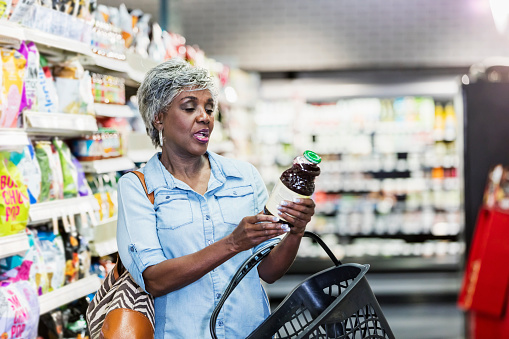
Frequently Asked Questions
California’s beverage companies are constantly innovating to provide more options than ever at the grocery store, from beverages with less or no sugar at all, to an increased variety of portion sizes to help you make the best choice for your family.
Through our most recent initiative to address health and wellness challenges, we’re working with the Alliance for a Healthier Generation to reduce sugar consumed from beverages. And in Los Angeles, where we have been working hard to support the community since 2014, we are seeing the positive impact that we can have by working together.
Taxes on common grocery items like beverages have never been shown to improve public health. In Mexico, obesity rates have increased since the imposition of a beverage tax there. A tax in Berkeley, Calif., led to an average daily reduction of just 6 calories per person, but that was greatly offset by a 32-calorie increase in purchases of non-taxed, high-fat beverages, such as smoothies and horchatas. Many studies show that a tax on sodas and other sugar-sweetened beverages do not reduce beverage calories in a meaningful way. Meanwhile, beverage companies are offering more choices with less sugar than ever before, and today nearly 60% of beverages purchased have zero sugar.
Numerous independent studies have consistently and repeatedly shown that beverage taxes have no impact on public health, but they have shown that these taxes raise prices dramatically and hurt local businesses:
- Researchers for Mathematica conducted a multi-year study on the effects of beverage taxes and found “no detectable impact” on consumption in Philadelphia and Oakland, Calif.
- A study by Drexel University found that the Philadelphia beverage tax had minimal to no influence on what Philadelphians are drinking, saying, “there was no major overall impact of the tax on general population-level consumption of sugar-sweetened or diet beverages, or bottled water.”
A Duke University study published in Harvard Business Review found that calorie reductions were minimal – and that half of the decrease in beverage consumption from the tax at Berkeley supermarkets was made up in increased purchases outside the city.
No. Singling out sugar sweetened beverages with warning labels while ignoring hundreds of other foods with as much or more added sugar is an inconsistent and confusing approach. Consumers need to know about ALL added sugars in foods and beverages. Federal law already requires that Nutrition Facts labels feature this information. Therefore, adding a misleading warning label to one set of products is unnecessary and counterproductive.
A recent Oxford Economic Study found that in Philadelphia, after implementation of their controversial beverage tax, nearly 1,200 were affected, GDP fell by $80 million, and labor income dropped by $54 million. The job losses impacted the retail, manufacturing and transportation sectors. The measure resulted in people shopping outside the city to avoid the beverage tax. And it wasn’t just confined to beverages as overall grocery sales dropped in Philadelphia and rose in the suburbs – why would shoppers leave the city just to purchase tax-free beverages? They don’t, they take the entire grocery cart with them. This hurt small businesses in Philadelphia and their workers, who saw layoffs and trimming of hours. People did not change their eating or drinking habits, they just changed where they shopped.
Seattle is another example of the unintended consequences of this tax. The city’s tax turned out to be far more complicated and harmful than politicians originally let on. Since the tax took effect, people are taking their business outside the city to save money. Owners of neighborhood grocers, markets, food trucks, take-out spots and restaurants are experiencing a significant drop in sales due to the beverage tax. For businesses that live off small margins, this impact is devastating.
Restrictive regulations on beverages hurt working families the most. For example, AB 764, which proposes bans on beverage coupons, is a hidden tax that will lead to higher prices on everyday beverages. Working families depend on discounts to make ends meet when shopping for groceries and this legislation will make it even harder for them to afford their grocery bill. It will also make it harder for local shop owners to retain their customers, hurting their already slim profit margins.
